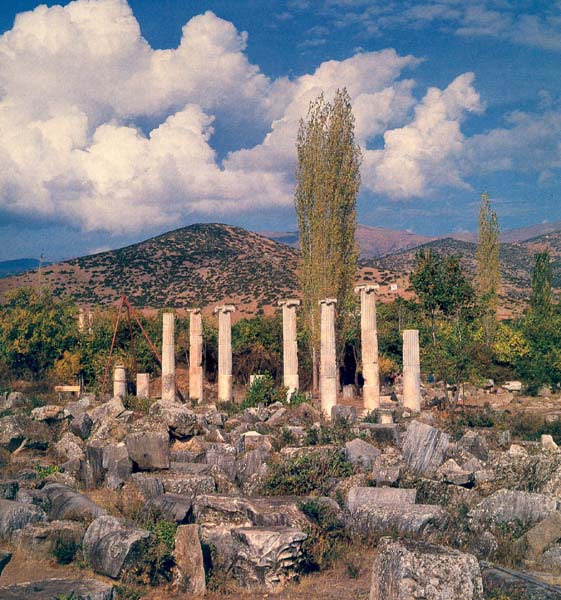Jews and God-Fearers in the Holy City of Aphrodite

A quiet, fertile valley folded into the Mediterranean hills, clear streams, tall poplars, ancient ruins more than 1,400 years old—a picture of pastoral quiet. Twenty-five years ago Kenan T. Erim, archaeologist and art historian at New York University, decided that the site of the ancient Roman city of Aphrodisias had more to offer than that. Now in southwest Turkey (an area known in ancient times as Caria), Aphrodisias was located next to a great marble quarry. The names of its sculptors have shown up as far away as Italy. Wouldn’t this be an ideal place to dig for ancient statues, thought Erim. It would, and it was: In two decades, systematic excavation1 has produced scores of stone-cut works of art including a great temple complex decorated with marble sculptures. So many statues have been found, in fact, that a site museum has been built to house them.
Already a library member? Log in here.
Institution user? Log in with your IP address.

